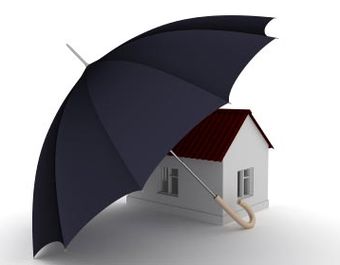As its name indicates, climate change brings about changes in the climate. Some places become hotter, while others become colder. In both cases, such changes are problematic for two reasons. First, current science is not capable of predicting the exact consequences of climate change because the mechanisms behind climate are still not well understood, meaning that predictions made using current models are uncertain while the usefulness of past evidence is beginning to fade. Second, the changes in climate around the globe mean that more natural disasters are taking place, which is a problem with obvious consequences.
How the Effects of Climate Change Impact Homeowners Insurance Providers
Insurance providers, including homeowners insurance providers, earn their profits by charging more premiums than what is paid out to their customers. Homeowners insurance providers must strike a balance between premiums so high that no one wants their product and premiums so low that their profits are threatened, using a combination of science and statistical models. Since climate change increases the number of natural disasters, which in turn increases the number of homes being damaged and thus the sums that insurers are obligated to pay out, this cuts into the profits of homeowners insurance. Similarly, the additional element of risk added into their statistical models also makes homeowners insurance providers less eager to insure homes. This is because the chances are higher that their estimates will be wrong, which ends up costing insurers more than it helps.
Unfortunately for homeowners insurance customers, the only way to convince homeowners insurance providers is to provide them with financial incentives to combat the estimated decline in their profits.

How that Impact Affects Homeowners Insurance Rates
In general, the rates charged on homeowners insurance rates are calculated based on the risk that the insurer is taking on. For example, a homeowner in an area prone to floods is going to end up paying more for his or her homeowners insurance than an otherwise identical homeowner elsewhere, unless his or her homeowners insurance does not include coverage for flooding as a standard feature. Homeowners can get their homeowners insurance rates reduced by eliminating elements of their homes that increase the chances that their insurer will have to pay out. Sometimes but not always, this is balanced against the desire of homeowners for amenities. For example, many homeowners get swimming pools installed for their personal use, but doing so raises their insurance rates because of the increased chances of an accident occurring.
However, there isn’t much that homeowners can do on their own to combat insurance rate increases due to changes to the environment that includes their entire region. The only way that homeowners insurance providers remain willing to offer said insurance to their customers despite increased risk is additional revenue to make up for that risk. For the most part, this additional revenue comes from charging higher rates on homeowners.
Conclusion
Although the incidences of natural disasters in 2012 suggest that more insurers will recalculate their models and charge higher insurance rates in 2013, there are still things that homeowners can do to reduce their rates. They are still capable of making their homes safer in order to reduce rates and can shop around using comparison services such as the one found at www.insurancetown.com to get the best prices possible.
About author: Jeff Mathis knows about the insurance industry having worked in it for 20years. He likes to share his knowledge and tips online by writing articles for blogs. Visit www.insurancetown.com for quotes and more information.

 Recruiting right talent for your company isn't easy. It requires lot of time and efforts to invite applications for a new job opening and eventually selecting the best candidate for the job. By using some online recruitment system, you can possibly save plenty of time and money, that goes in complete recruitment process and make HR efforts far more efficient.
Recruiting right talent for your company isn't easy. It requires lot of time and efforts to invite applications for a new job opening and eventually selecting the best candidate for the job. By using some online recruitment system, you can possibly save plenty of time and money, that goes in complete recruitment process and make HR efforts far more efficient.